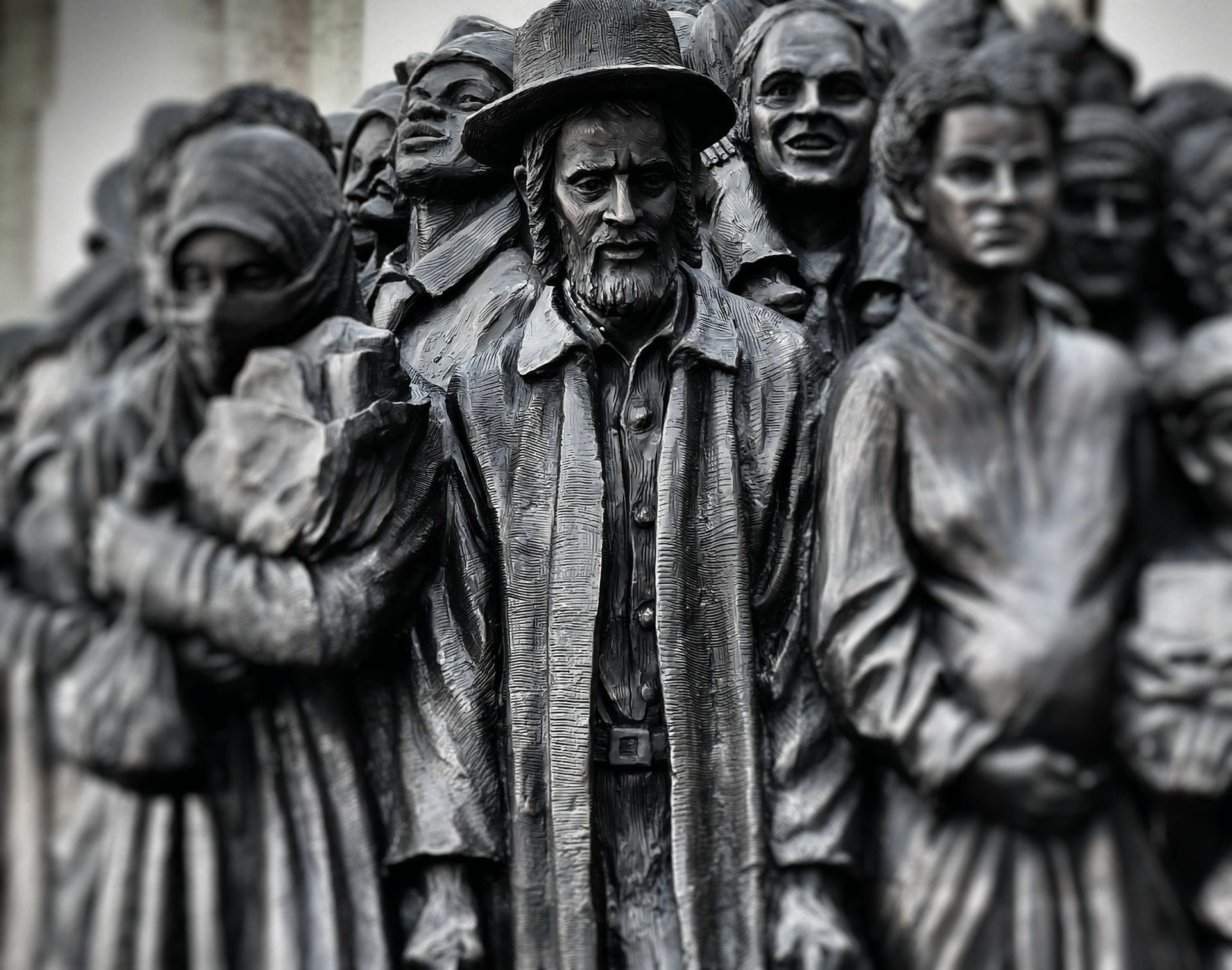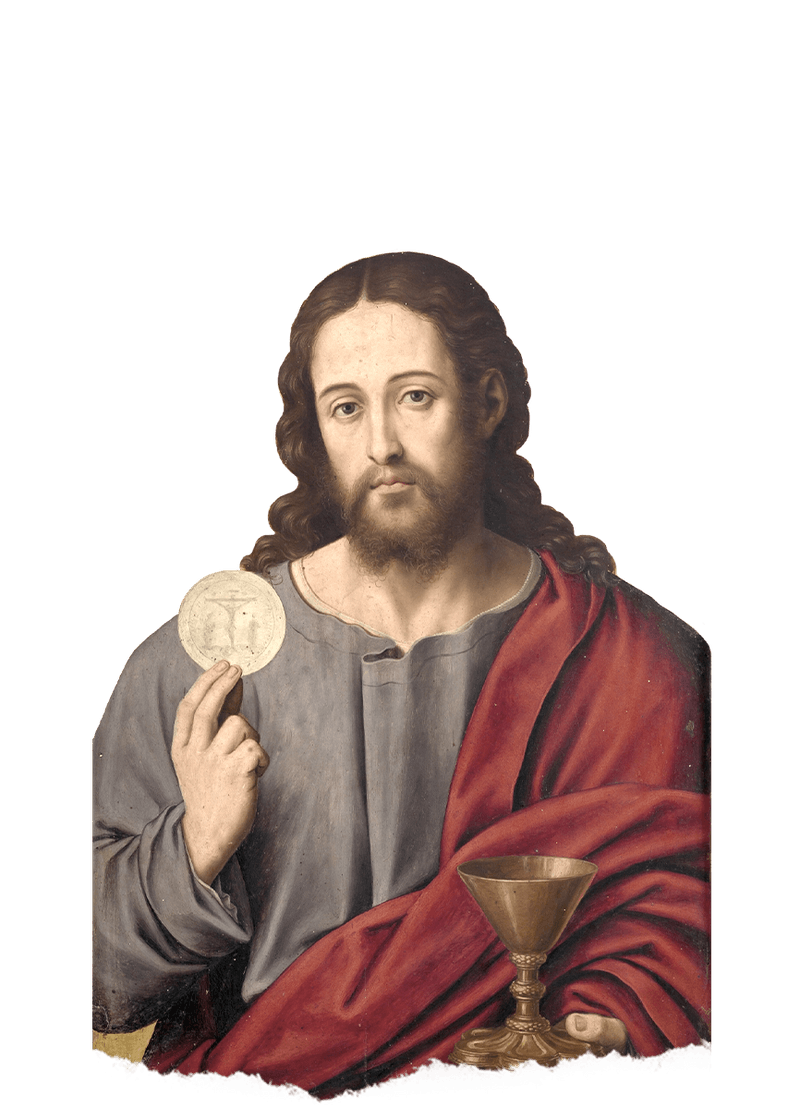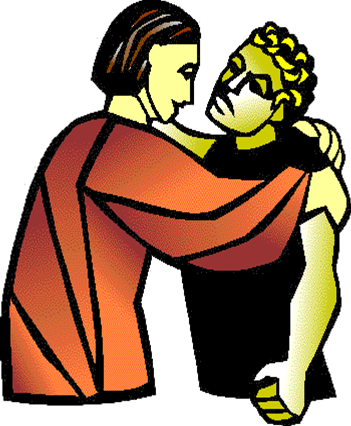We join the two disheartened and discouraged disciples who left the eleven in Jerusalem on the road to Emmaus, a place of rest, retreat, solitude and perhaps, leisure. They were at a loss. They didn’t believe the testimony of the eleven and the women in spite of what they heard. They were not convinced of the evidence brought that’s why they left the company. For them, the events on Good Friday was a colossal defeat. Their hopes dashed and expectations failed. It’s like everything’s gone in a heartbeat. How do you go back to normalcy? It’s Easter but it doesn’t feel like it. The sadness, gloom and despair is understandable. On the way, they met a mysterious stranger who engaged in tough conversation with them but seemed to be naïve and ignorant about everything that happened and is happening. It’s like talking to someone in denial of Covid-19. This was how this scenario unfolded. They described Jesus of Nazareth as a prophet mighty in deed and word. But “their eyes were prevented from recognizing him”. God prevented them in order to strike an important aspect of faith and resurrection appearances. The Risen Christ, though incognito, accompanied and aboserbed the pain and aches of the moment. Faith is gradual. Faith doesn’t come straight from up above. Faith is revealed. If you don’t believe, God won’t come to you. Remember, the risen Christ first appeared to those who have faith, to the inner circle, to people who belonged and closest to him, the disciples and the women. Faith is a way of knowing of the immense nature of God’s love. Faith is a lifetime process. Understanding the scriptures is a necessity. Jesus corrected them that what Christ’s suffering and crucifixion was a fulfillment of the scriptures. The passion was necessary to redeem humankind. This is the story of Christian redemption. Only after the scriptures have been explained did they come to faith. We learn as we walk. We grow as we live the trials and troubles that beset us.
We are in the middle of this pandemic. Although this crisis has inflicted grave damage on our lives already beyond imagination, we still don’t know the severity of the consequences. It has taken so much toll in almost all aspects of our lives. We can’t begin to imagine the lingering psychological impact. We can’t wait for this crisis to be over so that we can go back to our normal lives. We absorb so much the negative forces: the loneliness and isolation from the real world. It’s like death. We mourn. We grieve. We share our feelings and sentiments. But, tough times bring out the best in us. This is the stage in history (not that it didn’t occur in the past) when you see people risking and putting their lives on the line for others and helping each other even to the detriment of their own safety. Our community is no exception. We view our lives always in light of the scriptures.
As walk with Jesus and go through this difficult experience, we ask life and death situations. What if it happens to me? Where is God in all this? Is this crisis a punishment from God? Is God punishing us? Is this the same as the biblical plague? Is it God’s will? What are the theological implications? Can we talk about science and faith? Whose fault is it? Let’s find out. Who’s accountable? What does this crisis tell us?
Christ led them to the Eucharist. He took the bread, bless it, broke it and gave it to them. Isn’t this very gesture sums up our life? Jesus was made known to them in the breaking of the bread. The breaking of bread is our life. We see life in light of the scriptures. We understand the sacred writings. Then, our hearts are open. We learn to take care of the essentials in life. As we walk and meet Christ on the way, let’s name and identify three essential things in life.
In the end, we join them in saying, "were not our heart burning within us as we met him on the way?" It sure was. Amen.
PARISH BLOG



ABOUT US
WELCOME
SAINTS AND SINNERS, FAITHFUL AND UNFAITHFUL, RELIGIOUS AND OTHERWISE
USEFUL LINKS
CONTACT INFO
IMMACULATE CONCEPTION
928 C Avenue, P.O. Box 1176
Douglas, AZ 85607
PHONE: (520) 364-8494
ST. BERNARD AND MISSIONS
2308 N. McKinley St., P.O. Box 3101
Pirtleville, AZ 85626
(520) 364-2762
ST. LUKE
1211 E 15th St., Douglas, AZ 85607
(520) 364-4411
FLOCKNOTE SIGNUP
Diocese of Tucson News: Do you miss our diocese's former print newspaper “The Outlook”? Did you know that we now have an online version called: “The New Outlook”? Sign up for it today and it will automatically go to your email every week. It is entirely free, and it informs our readers about inspiring and important local, national, and international Catholic issues and events. To sign up for the “The New Outlook”
Log on: https://news.diocesetucson.org/subscribe
Enter your name and email address and you will begin receiving “The New Outlook” weekly in your email.
May God bless you abundantly!
Bishop Edward J. Weisenburger
